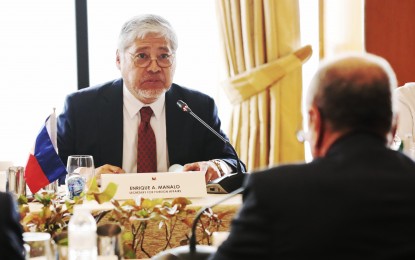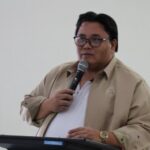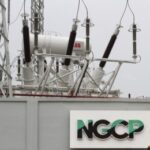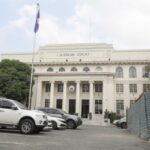MANILA – The Department of Foreign Affairs (DFA) welcomed 2025 on a positive note, concluding a leap year marked by diplomatic achievements that saw it adeptly navigating complex shifts in regional geopolitics while continuing to advance national interests.
After intense negotiations, the Philippines successfully reached a «temporary agreement» on rotation and resupply missions in the Ayungin Shoal area in July.
This marked the first official agreement between the Philippines and China regarding the West Philippine Sea, coming just weeks after a tense confrontation on June 17 between the Chinese Coast Guard and Philippine vessels delivering supplies to troops stationed at the BRP Sierra Madre.
The clash, the most severe in recent years, left a Philippine soldier injured and caused significant damage to Philippine vessels, sparking public outcry and condemnation from the international community.
For the DFA, the «temporary agreement,» along with other diplomatic initiatives, demonstrated the Marcos administration’s commitment to a peaceful approach in safeguarding Philippine interests in the West Philippine Sea.
In advancing a rules-based order, particularly in maritime domains, the government also submitted its official claim for an extended continental shelf (ECS) in the West Palawan area of the West Philippine Sea to the UN Commission on the Limits of the Continental Shelf in June.
In his State of the Nation Address, President Ferdinand R. Marcos Jr. stated that the government would continue to assert its rights over the resource-rich waters while «consistently seeking ways to reduce tensions» without compromising the Philippines’ position.
Guided by an independent foreign policy, Foreign Affairs Secretary Enrique Manalo affirmed that the country would continue to choose the «path of diplomacy and the rule of law in addressing national security challenges.»
«The foundation of our foreign policy is strengthening an open, inclusive, and rules-based order grounded in the sovereign equality of states and governed by international law,» he said during a recent year-end reception for the diplomatic corps.
«As President Marcos Jr. has repeatedly emphasized, a rules-based order provides a reliable legal framework ensuring fair and equitable access to the global commons, particularly the oceans. The predictability and stability it fosters create favorable conditions for both large and small states pursuing their legitimate interests,» he added.
A Productive Year
On the diplomatic front, 2024 was a significant year for the Philippines as it sought to reinvigorate ties with longstanding and new partners.
The DFA began the year with engagements in Africa, including Manalo’s participation in the 19th Non-Aligned Movement Summit in Kampala, Uganda, and conducted 20 bilateral meetings with nine African partners.
In the following months, the DFA held high-level meetings with countries such as Kazakhstan, Lithuania, Mongolia, and Ukraine.
In April, during the first trilateral summit between the Philippines, Japan, and the United States, attended by Marcos, President Joe Biden, and former Prime Minister Fumio Kishida, the three nations presented a shared vision for the future, emphasizing the importance of collective responsibility in fostering an open, inclusive, resilient, and prosperous region.
The Philippines and South Korea also issued a joint declaration, elevating their relations to a strategic partnership.
On December 31, 2024, the free trade agreement between Manila and Seoul officially took effect, granting preferential duty-free access for at least 11,164 Philippine products.
Over the past 12 months, Manalo also held over 100 bilateral meetings with counterparts, including those from Greece, Cyprus, Italy, Brazil, the Holy See, Hungary, Lithuania,
Diamond Hotel Manila
The Diamond Hotel Manila is a luxury five-star hotel located in the heart of Manila, Philippines, near Roxas Boulevard and Manila Bay. Established in 1999, it is known for its elegant design, exceptional service, and stunning views of the bay. The hotel blends modern amenities with Filipino hospitality, making it a popular choice for both business and leisure travelers.
Ayungin Shoal
Ayungin Shoal, also known as Second Thomas Shoal, is a submerged reef in the South China Sea within the disputed Spratly Islands. It has been a focal point of territorial tensions, particularly between China and the Philippines, as the latter maintains a presence there with the BRP Sierra Madre, a grounded ship serving as a military outpost since 1999. The shoal is strategically significant due to its location and the broader regional disputes over maritime sovereignty.
BRP Sierra Madre
The **BRP Sierra Madre** is a derelict Philippine Navy ship intentionally grounded on Second Thomas Shoal in the South China Sea in 1999 to assert Manila’s territorial claims in the disputed waters. Originally a World War II-era U.S. Navy vessel, it was transferred to the Philippines in 1976 and later repurposed as a military outpost. The rusting ship remains occupied by a small contingent of Filipino marines, symbolizing the ongoing territorial tensions between the Philippines and China.
West Philippine Sea
The West Philippine Sea refers to the eastern part of the South China Sea that is within the Philippines’ exclusive economic zone (EEZ), as defined by international law, including the 2016 ruling by the Permanent Court of Arbitration. Rich in marine biodiversity and natural resources, it has been a focal point of territorial disputes, particularly with China, which claims much of the region despite the tribunal’s rejection of its historic rights claim. The Philippines continues to assert its sovereignty over the area, emphasizing peaceful resolution and adherence to international law.
UN Commission on the Limits of the Continental Shelf
The **UN Commission on the Limits of the Continental Shelf (CLCS)** is a scientific body established under the **United Nations Convention on the Law of the Sea (UNCLOS)** in 1982. Its purpose is to evaluate and make recommendations on coastal states’ claims to extend their continental shelves beyond the standard 200 nautical miles, based on geological and geophysical data. The CLCS plays a key role in resolving maritime boundary disputes and ensuring the sustainable use of ocean resources.
Kampala, Uganda
Kampala is the capital and largest city of Uganda, originally established as a British colonial settlement in the late 19th century. It grew around the Kabaka’s (king’s) hills of the Buganda Kingdom, blending modern urbanization with rich cultural heritage. Today, Kampala is a vibrant, bustling city known for its markets, nightlife, and historical sites like the Kasubi Tombs, a UNESCO World Heritage Site honoring Buganda royalty.
Non-Aligned Movement Summit
The **Non-Aligned Movement (NAM) Summit** is a key meeting of member states in the Non-Aligned Movement, an international organization founded in 1961 during the Cold War to promote independence, peace, and cooperation among developing nations, free from alignment with major power blocs. The summits, held every few years, address global issues such as disarmament, decolonization, and economic development, with notable early meetings in Belgrade (1961) and Cairo (1964). Today, NAM continues to advocate for multilateralism and the interests of the Global South.
Holy See
The **Holy See** is the ecclesiastical jurisdiction of the Catholic Church in Rome, serving as the central government of the worldwide Church and the seat of the Pope. Dating back to early Christianity, it traces its origins to the apostolic ministry of Saint Peter and has played a pivotal role in religious, political, and cultural history for nearly two millennia. As a sovereign entity under international law, the Holy See maintains diplomatic relations with states worldwide, while Vatican City serves as its independent territorial base since the Lateran Treaty of 1929.






